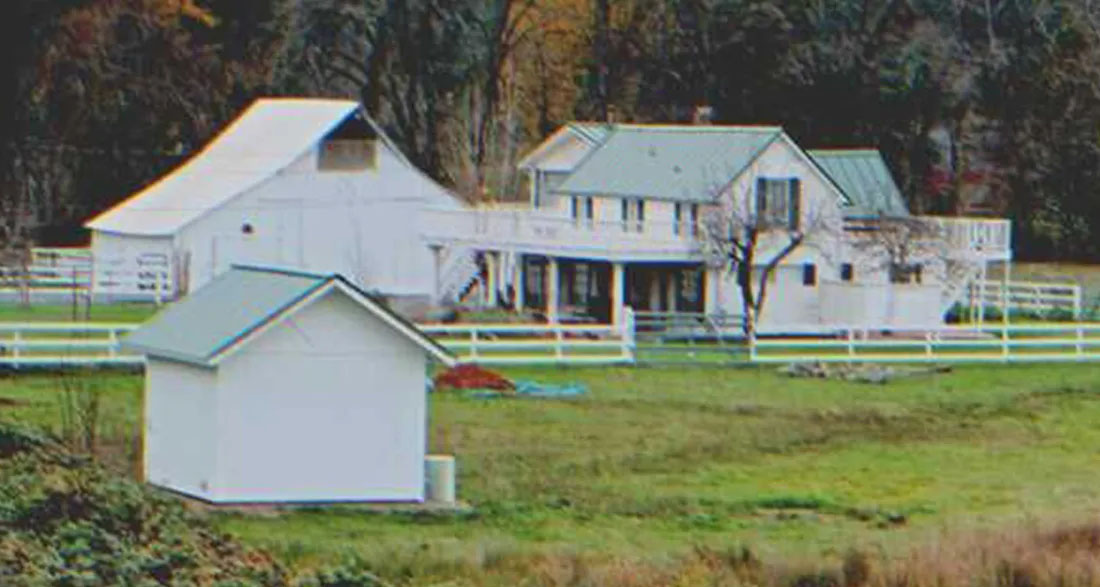Andrew Durham loved his farm more than anything in the world. It wasn’t just land to him; it was part of his soul. His family had been farming these lands for generations, starting with brave pioneers who had traveled west to Kansas, trying to tame the wild, untamed land. Andrew often said, “This land is in our blood. We’re born to farm it.”
He remembered the day his son Peter was born, holding him gently in his arms. “This little guy will carry on our family’s legacy,” Andrew whispered, feeling proud. To him, the farm was meant to be passed down. It was written in the stars.
But Andrew never thought about one simple thing—that Peter might have dreams of his own.
Life as a farmer was tough. Andrew would always remind his son, “Farming is not just a job—it’s our way of life. When the weather lets us down, there’s little reward.” Still, they both loved the land. Little Peter’s happiest moments were riding on his dad’s shoulders through fields of waving corn, and that’s when he first heard the music in his heart—the sound of singing and playing guitar.
But tragedy struck when Peter was just nine. His mother, Hannah, went shopping in a nearby town with a friend. Suddenly, she collapsed. A vein in her brain had burst. Despite doctors’ efforts, she didn’t recover. They told Andrew later, “Hannah probably carried that aneurysm all her life, like a ticking bomb.” Her sudden death shattered Andrew’s peaceful life.
Suddenly, he was alone, responsible for raising Peter. It was hard — like walking through a storm with no shelter. But slowly, they built a new life together out of the ruins of their old one.
Years went by. The other farms around them started using genetically modified seeds—seeds that grew faster and gave bigger crops. Andrew refused to follow that trend. “Honoring the land,” he said, “means respecting old ways.” But his choice hurt the farm’s profits. Crops weren’t selling like they used to. Money was tight.
By the time Peter was ready to graduate high school, Andrew was barely getting by. One evening, Andrew looked at his son, who was eating dinner, and said, “Peter, I’ve been thinking. Maybe I should sell some of the outlying fields. You could go to college, learn how to grow this farm better than I ever did.”
He looked at Peter with hope. “Get an agriculture degree, son. Turn this farm around. I believe in you.”
Peter sighed, putting down his fork. He looked his father in the eyes and said softly, “Dad, I love you and I love this farm. But… I have my own dreams. I want to sing and play guitar. I want to write songs and maybe even be a musician.”
Andrew stared. His face was stunned. “What about the land?” he asked. “Our family’s legacy? Don’t you want to keep it alive?”
Tears filled Peter’s eyes. “I do, Dad. But my dream isn’t farming. It’s music.”
That night, Andrew lay awake, twisting and turning. His mind was filled with questions. What would Hannah do? What would he do if Peter’s dreams were different? Could he accept that his boy wanted to follow a different path?
The next morning, Andrew was gone. His truck was missing too. Peter woke up and went to check his father’s room. His clothes, his mother’s portrait—gone. And on the bed was an envelope. Inside, there was a letter:
“My dear Peter,
The reason I’ve sold the farm is because my heart isn’t in it anymore. I want you to have the chance to follow your dreams. I’m moving to Grandpa Velly’s old cabin. Be happy, my son. Make your music.
Love, Dad.”
Peter felt a sinking feeling. Had his father really left forever? He found his father’s truck was gone, but then he noticed the letter on the bed again. He read:
“The sense of my life has gone. I’m going to where my heart belongs. Please forgive me—I had to set you free.”
Determined to bring his father back, Peter drove into town. He found his dad at the old cabin. He knocked. When Andrew opened the door, he looked shocked.
“Peter! I thought you were going to Nashville!” his father exclaimed.
“I am,” Peter said. “But I’m coming back home, Dad. I took the money from the sale, but I convinced the buyer to give it back. This farm is part of me too. My roots are here—just like yours.”
Andrew hesitated, then nodded. He realized he had been wrong. Sometimes, you have to let go—for love and for hope.
Soon after, Andrew moved back onto the farm. Peter went to Nashville, chasing his dream. But Andrew found a new way to make the farm thrive. He decided to grow organic vegetables—an idea that turned out to be very profitable.
And Peter? He didn’t waste the opportunity. He staged a big country music festival on the farm, inviting some of his favorite stars to perform. The event was a huge success! The farm, once struggling, became famous as one of Kansas’ most popular music venues.
And maybe someday, Peter’s own children will want to be farmers too. If they do, they’ll find a squarely rooted family tradition—and the story of a dad who finally learned the hardest lesson of all: respect your children’s dreams.
What can we learn from this story?
Parents shouldn’t decide what their children will do forever. Andrew thought Peter would follow in his footsteps, but Peter had other dreams. And when Peter refused to give up, he found his own way—showing that where there’s a will, there’s always a way. Sometimes, all we need is a little courage and a lot of love.

